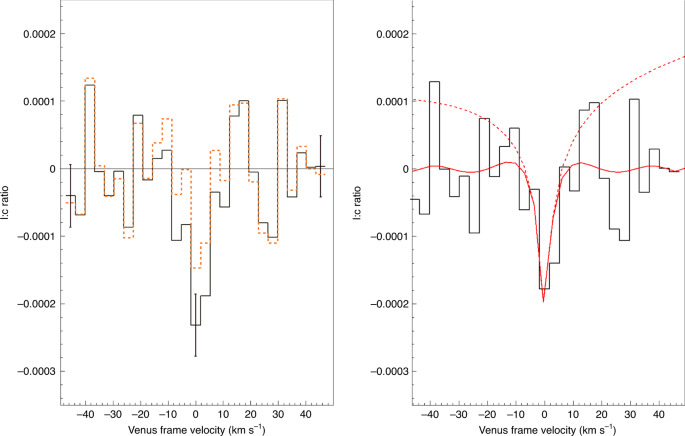so this is lit as shit. theyre saying there is a source of PH3 in the atmosphere of venus, an atmosphere which rarely has any sort of bond containing hydrogen. this implies it could be life.
however, they also mentioned it appearing near the equator. and that made me remember some articles about phosphine in comets and some others about how asteroids tend to hit our equator more. how much yall wanna reckon a giant comet hit that motherfucker many years back and had ph3 in it? they say that the phosphine would deplete in 10^3 years if it is not renewed, i didnt see any info on whether the concentration changed in their year of observation
here's their bit on anomalous events, which doesnt seem to mention asteroids or comets:
Energetic events are also not an effective route to making PH3. Lightning may occur on Venus, but at sub-Earth activity levels33. We find that PH3 production by Venusian lightning would fall short of few-ppb abundance by factors of 107 or more. Similarly, there would need to be >200 times as much volcanic activity on Venus as on Earth to inject enough PH3 into the atmosphere (up to ~108 times, depending on assumptions about mantle rock chemistry). Orbiter topographical studies have suggested there are not many large, active, volcanic hotspots on Venus34. Meteoritic delivery adds at most a few tonnes of phosphorus per year (for Earth-like accretion of meteorites). Exotic processes such as large-scale tribochemical (frictional) processes and solar wind protons also only generate PH3 in negligible quantities (W. Bains et al., manuscript in preparation, submitted to Astrobiology as ‘Phosphine on Venus cannot be explained by conventional processes'; also see Extended Data Fig. 10).
i do like that theyre going for the gold and asking for a new visit to venus and some new telescopes though.


i do like this one theory of 'three planets' that were all life compatible and just so happened to be close enough to spew gene shit all over each other when life worked on one of them. there was a period of time where mars, venus, and earth may have each been habitable during a time frame. earth was mostly frozen to shit at the time
That is really fascinating to think about
i think it's more fascinating to think that life developing given the right conditions is just the natural order of things. i think the universe would be infinitely more interesting knowing that life can evolve from basic planetary ingredients, because it virtually guarantees that humans are not alone in the universe and there is other highly intelligent life - likely a lot of life much more intelligent than us.
It's almost guaranteed that if life has arisen on Earth by some abiogenic process, it will be quite prolific. Life started on Earth basically as soon as it was cool enough that liquid water could form, about a billion years after Earth formed (about 3.5 billion years ago).
Multicellular animals, on the other hand, only evolved some 600 million years ago. To me this paints a slightly bleak view of life in the universe where almost all of it is just these sludge pits with unicellular life without nuclei or organelles in general. Zipf's law or the Pareto principle kinda implies that we ought to be the most numerous of sentient technological life in the galaxy.
On the one hand it makes it a little lonelier, but it also makes Earth and humanity writ large so much more important to protect as the rare jewels they are.